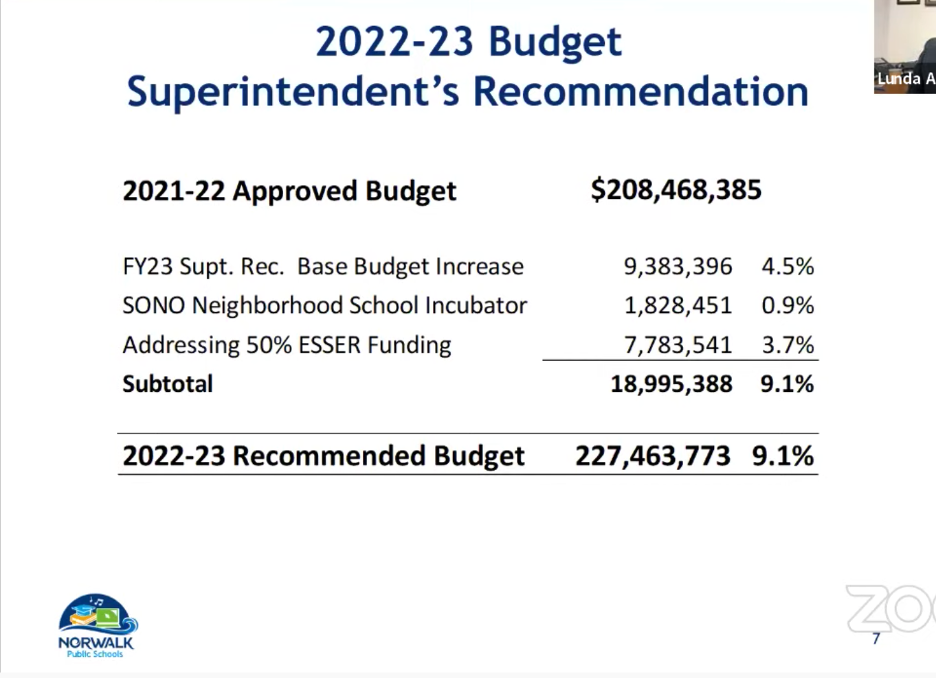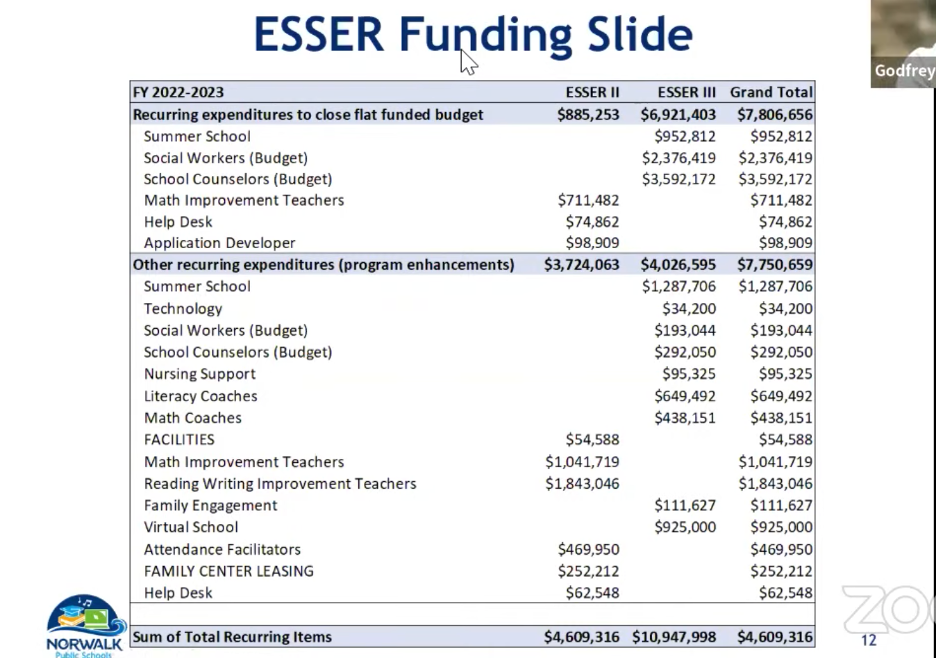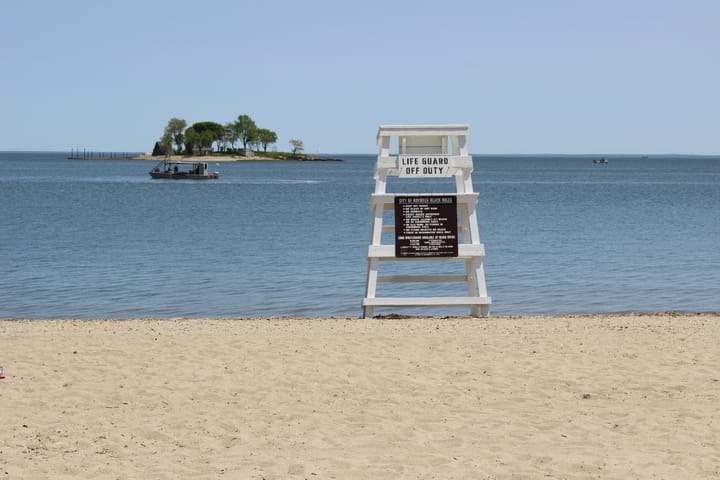Norwalk Proposes Additional Funding for Schools
The Norwalk Common Council will be voting to increase its budget cap slightly to give more funding to the school district.

The Norwalk Common Council will be voting on Tuesday to cap the overall budget for the city and schools at $414 million, of which about $367 million is projected to come from local taxes.
This number is slightly higher than the initial recommendation from Mayor Harry Rilling and Chief Financial Officer Henry Dachowitz, due to calls from parents and Board of Education members to increase funding to the school district.
Rilling and Dachowitz initially proposed increasing the school district’s budget by 3.75%, or $7.8 million more than last year’s $208.4 million.
However, the Board of Education has asked for a 9.1% increase, or an $18.9 million increase for its 2022-23 budget.
After dozens of parents raised concerns about the city’s proposed budget, and after the Common Council and Board of Education held a joint meeting to discuss some of the plans for the funding, Rilling and Dachowitz adjusted their recommendation, planning to give the schools 4.5% or an almost $9.4 million increase. The proposed budget for the schools is now $217.8 million.

The city’s side of the budget is also slightly higher to fund a full-time staffer for the Parks and Recreation Department. The proposed budget for the city is now $196.2 million.
The council will be voting on Tuesday to cap the budget. From there, the recommended budget goes to the Board of Estimate and Taxation for further discussion and potential additions, deletions, and reallocations—as long as it stays under the cap set by the Council.
School District’s Request
Superintendent Alexandra Estrella and the school district’s Chief Financial Officer Lunda Asmani said that they asked for the 9.1% increase to provide funding for three main areas:
- Just under $9.4 million, or a 4.5% increase, for annual contractual expenses, such as salary increases for teachers and staff and health insurance costs
- $1.8 million, or a 0.9% increase, for the SONO Neighborhood School Incubator program
- Almost $7.8 million, or a 3.7% increase, for “addressing 50% of ESSER funding”
While there is still a possibility to move funding around or find cuts elsewhere, the 4.5% increase proposed by the city is unlikely to fund all three of these priorities.
The “addressing 50% of ESSER funding” is part of the Board of Education’s plan to help cover “additional expenses” that are right now being covered by federal COVID-19-related funding, such as the American Rescue Plan Act and Elementary and Secondary School Emergency Relief Fund (ESSER).

The goal of that funding was to help “address the impact that COVID-19 has had, and continues to have, on elementary and secondary schools across the nation,” according to the Department of Education. However, school district officials have said that they’ve had to use the COVID funding to cover “ongoing expenses,” which would set them up for a fiscal cliff when the funding runs out in the next year or two. Estrella said that this would help “level set” the district after last year’s budget, which only saw a 2% increase.
“When we were not provided the resources expected and (had to) transfer some of those priorities into the ESSER grant to balance the budget—this is why we’re asking to fund us at the 9.1% as we move forward we won’t have to let go of personnel we need,” she told the joint meeting of the Board of Education and Common Council.
According to Asami, more than 100 positions, such as reading improvement teachers, nursing support, school counselors, and attendance facilitators, are funded through federal funding. Those employees were told that their positions were subject to available funding, and while many are specifically working to address the impacts of the pandemic, school officials have said that some of them are necessary to continue to enhance interventions, reading support and more.
“We had to make those hard choices because our students needed the support and intervention,” Estrella said, stating that the small increase in their budget, they had to use their federal funding to provide these resources.
The funding was also used to support summer school programs, math and literacy coaches, the lease of the school district’s family resource center, and technology assistance.
Next Steps for the Budget
The new recommendation would cover the district’s annual increased expenses, and result in slightly higher taxes on individual homes.
The Common Council voted four in favor, with three members abstaining, to approve the new cap and submit it to the full council. The full council will vote on Tuesday, Feb. 22 to establish the budget cap, and then the Board of Estimate and Taxation will review all of the department proposals—on the city side—and the overall Board of Education budget, before making its budget recommendation. The recommended BET budget cannot be above the cap set by the council.
Some council members said that they would like to see even more funding added for the schools.
Council Member Nora Niedzielski-Eichner said that while she was “thrilled” about the 4.5% increase, she still thought it was too low and would like to see at least funding added back to cover the incubator.
Council Member Dominique Johnson emphasized the need to provide the schools with resources to help students, but also to keep eye on expenses to “make sure we don't lose working families in the city.”
“Funding education—it’s clearly not easy,” Johnson said.
Other council members echoed this point, saying that additional taxes could hurt many of the city’s residents who were most impacted by the pandemic.
“I want others to remember that our rents are not low,” said Council Member Diana Révolus. “I am glad with the numbers, I am a parent in the Norwalk Public Schools—I know that our schools need a lot…we have to think about what’s equitable for our community.”



